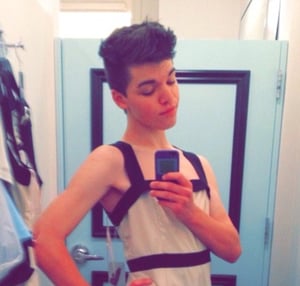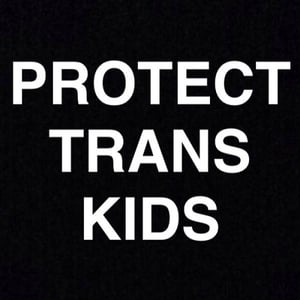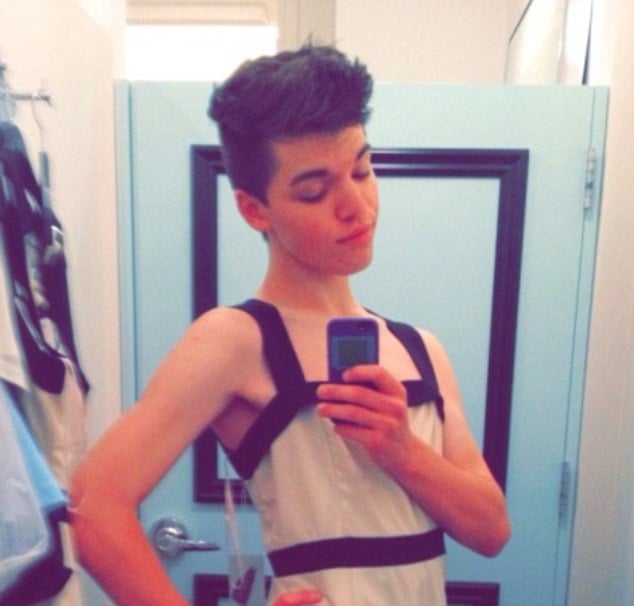In the wake of the death of Leelah Alcorn, a 17-year-old girl, I think we can all agree that no words can even measure up to counter the amount of suffering and injustice LGBTQIAP youth face.
I see youth and adults of various gender identities suffer from what killed Leelah. It has a name. It is called transphobia.
As an out transgender man in Louisiana, life is rough for me. It was very rough for me as a kid. In a lot of ways, I was denied a childhood due to my gender identity. In my undergraduate career, I helped form a social support group for transgender people and their allies.
Every day is a battle that not one of us signed up to face. It is to the point where I am scared to know too many transgender people because I know the statistic too well. I’ve been in rooms where when asked who attempted suicide before, everyone raised their hand, including myself.

Leelah Alcorn posted this photo of herself on Tumblr with the caption "I don't take many selfies because I hate how I look as a boy and I rarely get a chance to dress as a girl, so I'm only posting 5, but this year was a big year for me."
While I can’t imagine the suffering Leelah might have experienced, I do know the suffering that comes with parents who do not accept you, and how hard it is to rebuild your life.
I remember when I came out to others at my high school and other family members, they told me that no one would ever love me.
At the time, I felt like dying. I felt like I could die and mean nothing to the world, ever.
A pivotal point for me was when I got to college and met my Point Foundation mentor. She helped me grow from the boy who was suffering from tremendous pain, into the happy man I am today ; a difficult process not without its pain and challenges.
I want to emphasize that Leelah was more than a brave transgender youth. She was a young girl who had a future. Her future was robbed from her by her parents and those around her who were not speaking up in her defense.
We will continue to rob LGBTQIAP youth of their futures if we do not ban the use of corrective therapies. By allowing these “therapies” to exist, we are telling youth that the problem lies with their identity and does not allow them to get help for the problems they face in society due to our transphobia.
How do we prevent more youth from dying? I do not have all the answers or the answer, but I do have some advice from my own experience and those who I have helped.

Photo credit: http://originalplumbing.tumblr.com/
There are surprisingly simple ways that we can help transgender people while they are here, instead of just honoring them when they die.
- Inaction is action. By not acting, we are allowing this to happen
- Reach out when in doubt. If you have any doubt about someone’s well-being, reach out to them. Say a compliment. Make everyday conversation with them and gain their trust.
- Refer them to someone who has more expertise than you. If you do not know what to say to someone who is suffering from transphobia, tell them about someone who does know what to say.
- Look at your role models and what you admire about them—become them. One of the best ways to be an ally to the transgender community is to be an ally to yourself. You do this by surrounding yourself with people you admire.
- It is not enough to say “It Gets Better;” When in doubt over what to say, your best role may be to take the person out to get a slice of pizza, or you can tell them a really good joke.
- Be out; by not living out lives, you are allowing more transgender people to be murdered by injustice and transphobia.
- Organize a list of resources in your area.
- Take every chance to mention something positive about feminism and transgender people in everyday conversation.
Look within yourself. A new life was waiting for Leelah, yet we as a society denied her transition to the life she deserved.
| This post was written by Point Alum Eli |
 |

